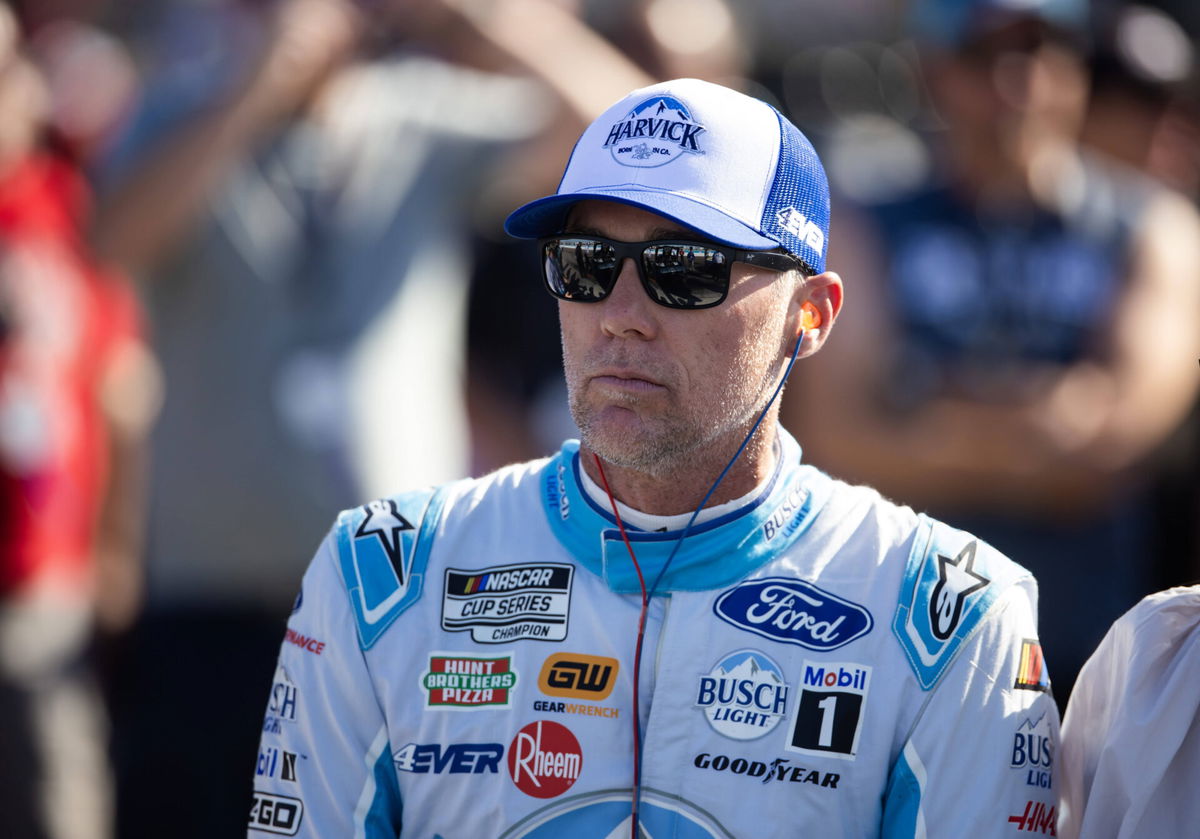
Imago
NASCAR, Motorsport, USA Cup Series Championship Qualifying Nov 4, 2023 Avondale, Arizona, USA NASCAR Cup Series driver Kevin Harvick during qualifying for the NASCAR Championship Race at Phoenix Raceway. Avondale Phoenix Raceway Arizona USA, EDITORIAL USE ONLY PUBLICATIONxINxGERxSUIxAUTxONLY Copyright: xMarkxJ.xRebilasx 20231104_mjr_su5_006

Imago
NASCAR, Motorsport, USA Cup Series Championship Qualifying Nov 4, 2023 Avondale, Arizona, USA NASCAR Cup Series driver Kevin Harvick during qualifying for the NASCAR Championship Race at Phoenix Raceway. Avondale Phoenix Raceway Arizona USA, EDITORIAL USE ONLY PUBLICATIONxINxGERxSUIxAUTxONLY Copyright: xMarkxJ.xRebilasx 20231104_mjr_su5_006

Imago
NASCAR, Motorsport, USA Cup Series Championship Qualifying Nov 4, 2023 Avondale, Arizona, USA NASCAR Cup Series driver Kevin Harvick during qualifying for the NASCAR Championship Race at Phoenix Raceway. Avondale Phoenix Raceway Arizona USA, EDITORIAL USE ONLY PUBLICATIONxINxGERxSUIxAUTxONLY Copyright: xMarkxJ.xRebilasx 20231104_mjr_su5_006

Imago
NASCAR, Motorsport, USA Cup Series Championship Qualifying Nov 4, 2023 Avondale, Arizona, USA NASCAR Cup Series driver Kevin Harvick during qualifying for the NASCAR Championship Race at Phoenix Raceway. Avondale Phoenix Raceway Arizona USA, EDITORIAL USE ONLY PUBLICATIONxINxGERxSUIxAUTxONLY Copyright: xMarkxJ.xRebilasx 20231104_mjr_su5_006
NASCAR’s playoff format has been a hot-button topic since the Chase kicked off in 2004, evolving into the 16-driver elimination showdown we’ve got now. The current setup, 10 races whittling down to a four-driver, one-race finale, aims for drama and clarity, with the highest finisher in Phoenix taking the crown. It’s simple for casuals: last race, best place wins. But the backlash is real: critics say it’s too much about one bad day knocking out a season’s work, not rewarding the full-year grind.
Watch What’s Trending Now!
Social media and forums are split, with a Mark Martin poll of 21,000 fans showing 59.7% craving the old full-season points system. Drivers like Hamlin and Harvick have griped too, and now Kevin Harvick’s sharing his valuable take with analyst Bob Pockrass on the Happy Hour podcast, both analyzing if the current one-race finale truly crowns a deserving champion.
Harvick and Pockrass idealize on playoffs
On Happy Hour, Bob Pockrass jumped in with his take: “It has been pushed for this third for 36 races, but I just, I mean, I don’t think the last 20 years have been all too bad. I know that I ever remember, but I mean the thing is that, you know, as we talked earlier, the 10-race championship I thought I’d love that.”
Pockrass is nodding to the original 2004 Chase, a 10-race playoff that crowned champs like Jimmie Johnson’s five straight from 2006 to 2010. It kept things fresh in the fall without the full reset, letting drivers like Jeff Gordon in 2009 stay relevant late.
He sees the last 20 years as solid, but he’s got a beef with the one-race finale since 2014: “I felt the one race has been, wow. Easy to understand is not the best way to crown a racing champion. I think they’ll go, you know, four or five races. They’ll have some sort of playoff and then cut it down once to, you know, five or six, and you’ll have four or five races.”
Harvick added his vision to this: “The thing about the four races, the office, I like the fact that you can take a superspeedway, you can take a road course, you can take a short track, and you can take an intermediate, and you know, may the best man win. That can put all those different, you know, styles of race tracks together, and it just flips.”
He’s all for a multi-race championship that tests everything, Daytona’s drafting madness, Watkins Glen’s twists, Bristol’s bullring brawls, and Kansas’ high-banked intermediates. Harvick’s 2014 title run, with wins at Phoenix and Homestead, shows why he loves the variety. It’s a truer measure of a champ, not a crapshoot like Harvick’s 2020 nine-win elimination. Pockrass’s four-or-five-race finale idea splits the difference, drama without the one-race roulette.
Their dissection’s timely, NASCAR’s playoff committee’s mid-September meeting narrowed options for 2026, with more fans now wanting a full-season points system. Forde on Hauler Talk said playoff points are likely gone, confusing casuals with resets, and the one-race finale might end after 2025. A top 10/12 plus winners setup, or bigger win bonuses, could reward consistency without losing the thrill. “The next step is NASCAR is going to get its leadership in position and really have a discussion and lock ourselves in a room and figure it out from there.”
Track presidents push for playoff dates to sell tickets, and sponsors love the storylines, but Denny Hamlin’s “one bad race shouldn’t end your season” rings true for fans tired of the 2020 Harvick heartbreak. Harvick and Pockrass’ back-and-forth shows the sport is at a crossroads: keep the Chase’s edge or swing back to Winston Cup simplicity.
Harvick’s horsepower push
Harvick’s playoff passion ties to his beef with the Next Gen car’s tame power, a debate that’s raging as NASCAR eyes changes. On Happy Hour with Bob Pockrass, Harvick dropped a bombshell: he’d heard the rumored 2026 horsepower bump to 740-750 hp from 670, “the driver couldn’t even tell.” “It needs a ton of horsepower. It needs to be faster,” he said.
Doug Yates, Roush Yates Engines CEO, called 750 hp “not much of a change” for builders, and NASCAR’s Elton Sawyer confirmed it’s a 2026 initiative. Harvick’s all-in for more juice, arguing the current setup’s too easy, with younger drivers burning tires without the finesse he honed on 900-hp Gen-6 cars.
Engine bills haven’t dropped with the power cut from the late 2010s, Harvick noted, so why not rev up? The Next Gen’s 670 hp feels sluggish, Blaney’s 2025 New Hampshire pole at 29.159 seconds lags Keselowski’s 2014 record of 27.281, and Truck poles are beating it.
Harvick’s tying this to the playoff debate: a faster car means better racing, drawing eyes and fixing ratings woes. It’s a full-circle call, make the playoffs fairer with a multi-race finale, and juice the cars to keep fans hooked.


